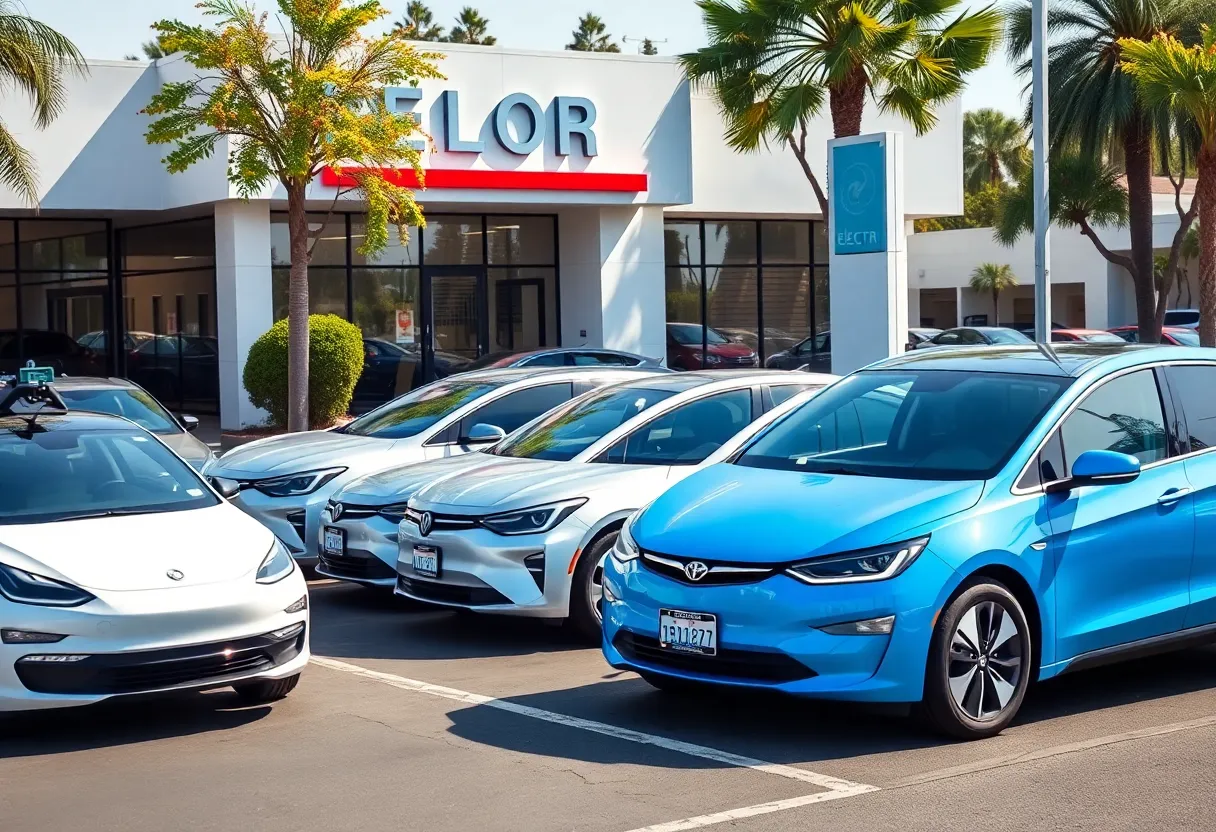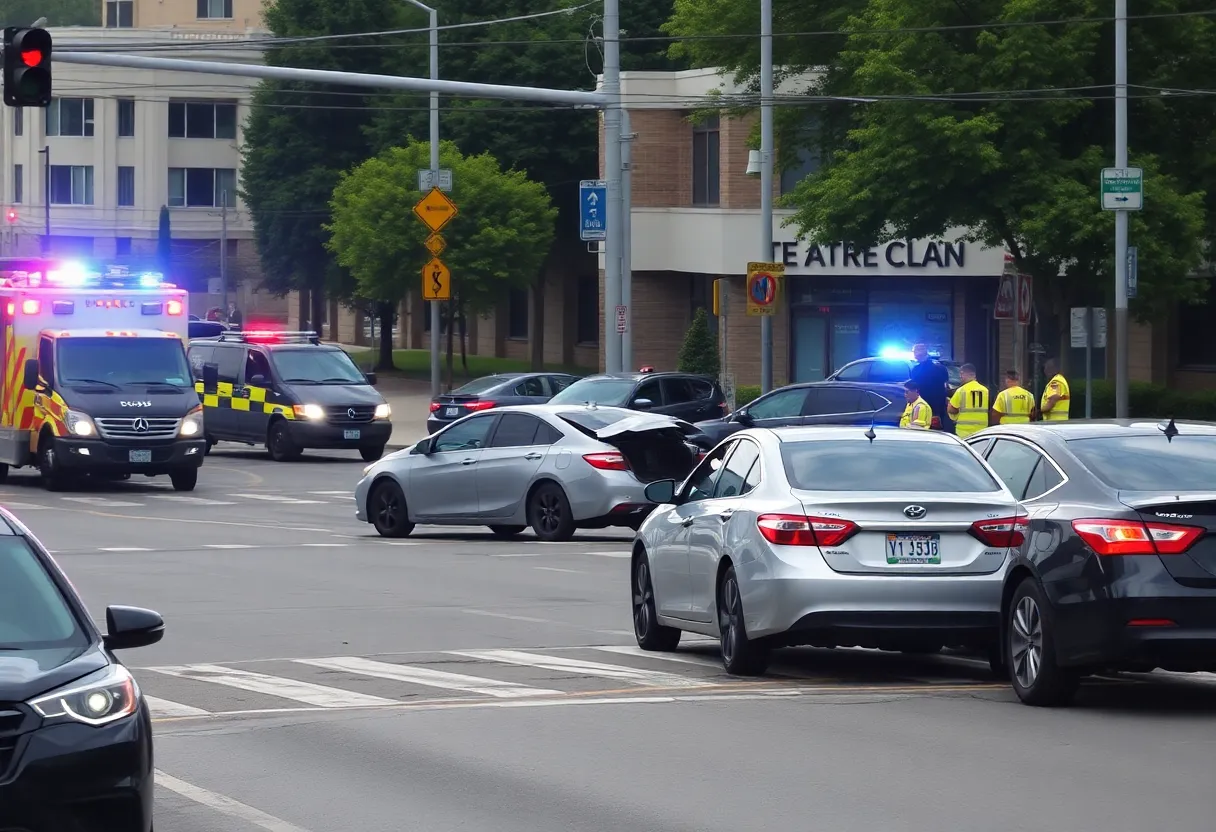News Summary
The U.S. Senate is set to vote on resolutions to block California’s vehicle emissions standards, including a ban on new gas-powered cars by 2035. Senate Majority Leader John Thune announced a swift vote is expected this week, despite opposition from Senate Democrats who argue the regulations are essential for addressing climate change. California aims for a significant shift towards electric vehicles, amid concerns about grid capacity and potential costs for consumers. The move has sparked debates about the future of emissions policies on a national scale.
California – The U.S. Senate is preparing to vote this week on resolutions aimed at blocking California’s ambitious vehicle emissions standards, which include a groundbreaking rule to phase out the sale of new gas-powered cars by 2035. Senate Majority Leader John Thune has announced that these resolutions, which have already passed in the House of Representatives, will be considered swiftly by the Senate, with final votes expected as early as this week.
The Senate Parliamentarian and the U.S. Government Accountability Office have ruled that California’s emissions policies do not fall under the Congressional review mechanism being utilized by Senate Republicans. However, these Republicans argue that California’s regulations would result in a nationwide electric vehicle mandate, posing threats to consumers, the economy, and energy supply. Thune described the rules as an “improper expansion” of the Clean Air Act.
California has a long history of being authorized to enforce stricter emissions standards than the federal government due to its severe air pollution challenges. In 2020, Governor Gavin Newsom announced a plan to ban the sale of new gas-powered vehicles by 2035 as part of a broader strategy to reduce transportation emissions in the state. The regulations require automakers to sell a growing percentage of zero-emission vehicles, mandating that 43% of new sales be electric by 2027, increasing to 68% by 2030, and hitting 100% by 2035.
Although the sale of new gas cars will be prohibited, used gasoline vehicles, plug-in hybrids, and hydrogen-powered cars will still be available for consumers. The latest Senate actions come after the previous Trump administration revoked California’s enforcement authority regarding emissions standards, an authority that was restored during the Biden administration.
In addition to California, over a dozen states have adopted similar emissions policies, while some, like Vermont, have paused the enforcement of these regulations. Senate Democrats are strongly opposing the GOP’s efforts, raising concerns about the legislative process and the potential implications for future legislation. Senate Minority Leader Chuck Schumer criticized the procedural tactics used to advance these resolutions, likening them to a “nuclear” option that could diminish voting thresholds.
One of the key concerns surrounding the proposed EV regulations is the capacity of California’s electric grid to support the anticipated increase in electric vehicle usage. Despite these challenges, California remains committed to its climate goals, which include achieving net-zero greenhouse gas emissions by 2045 and improving the infrastructure for electric vehicle charging stations.
Recent data indicates a growing trend among California residents towards electric vehicles, with a notable percentage of all U.S. EV registrations occurring within the state. Currently, federal tax credits are available for electric vehicle purchasers; however, these incentives may be reduced under the proposed Republican measures. Additionally, Uber has announced challenges in meeting its electric vehicle targets due to high EV costs and fluctuating government support for electric vehicle policies.
In a proactive move, San Francisco has launched a curbside charging station initiative aimed at making electric vehicle ownership more accessible for residents without private garages. This program, led by the company it’s electric, began its installation on Fillmore Street and aims to address charging access issues for those living in apartments. Costs for public charging range from $1 to $5 per hour, providing crucial support for electric vehicle owners in urban environments.
Overall, California’s ambitious climate objectives include aiming for 25% of private vehicles to be electric by 2030 and 100% by 2040, necessitating a substantial expansion of public charging infrastructure to support these goals.
Deeper Dive: News & Info About This Topic
- San Francisco Chronicle: Electric Car Costs in California
- Wikipedia: Electric Vehicle
- AP News: Senate Blocks California Vehicle Standards
- Google Search: California emissions standards
- San Francisco Examiner: Uber’s EV Targets
- Google Scholar: California electric vehicle policy
- CBS News: Curbside EV Chargers in San Francisco
- Encyclopedia Britannica: Air Pollution
- Chargedevs: Curbside Chargers Installation
- Google News: California electric vehicle charging
- NBC Bay Area: EV Charging Program in San Francisco

Author: STAFF HERE BEVERLY HILLS WRITER
The Beverly Hills Staff Writer represents the experienced team at HEREBeverlyHills.com, your go-to source for actionable local news and information in Beverly Hills, Los Angeles County, and beyond. Specializing in "news you can use," we cover essential topics like product reviews for personal and business needs, local business directories, politics, real estate trends, neighborhood insights, and state news affecting the area—with deep expertise drawn from years of dedicated reporting and strong community input, including local press releases and business updates. We deliver top reporting on high-value events such as the Rodeo Drive Concours d'Elegance, the Beverly Hills artSHOW, Concerts on Canon, and holiday celebrations throughout the city. Our coverage extends to key organizations like the Beverly Hills Chamber of Commerce and Visit Beverly Hills, plus leading businesses in luxury fashion, hospitality, and entertainment that drive the local economy. As part of the broader HERE network, including HERELosAngeles.com, HERESantaAna.com, HEREHuntingtonBeach.com, and HERECostaMesa.com, we provide comprehensive, credible insights into Southern California's dynamic landscape.



